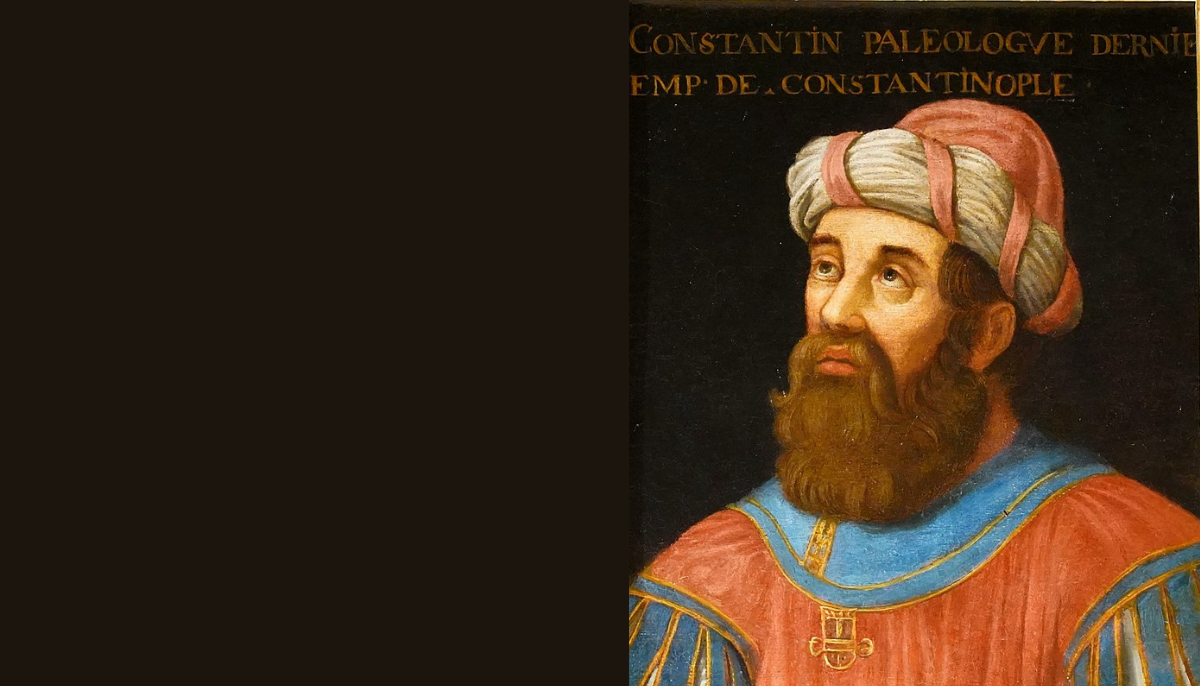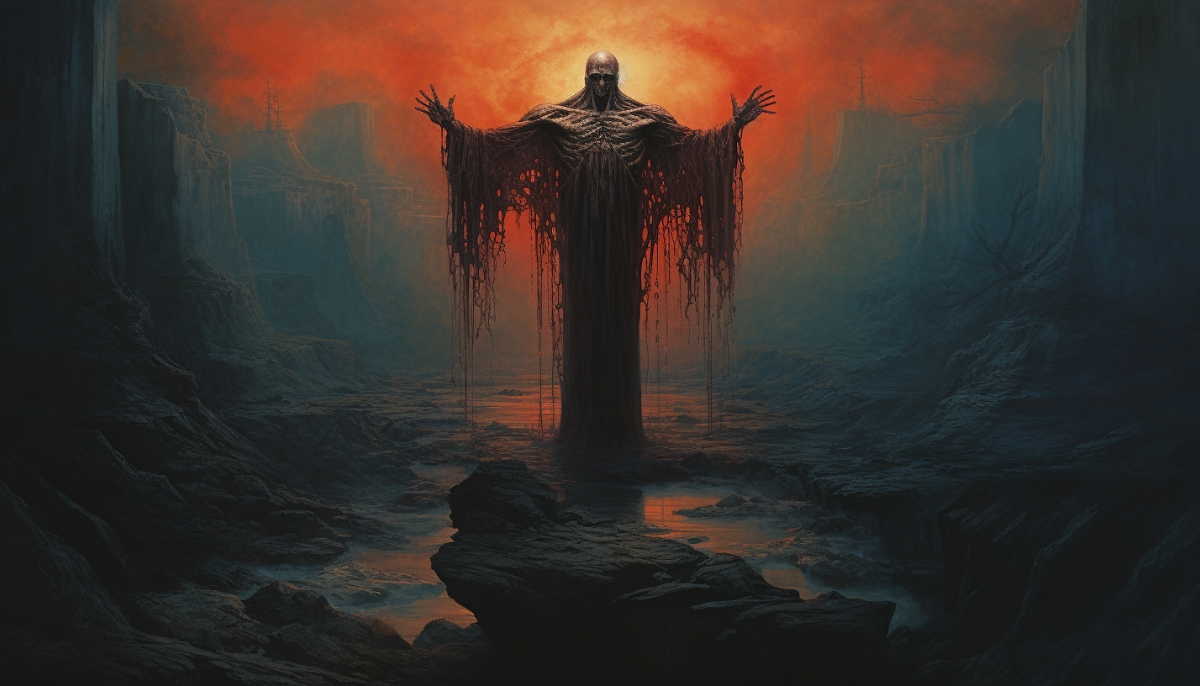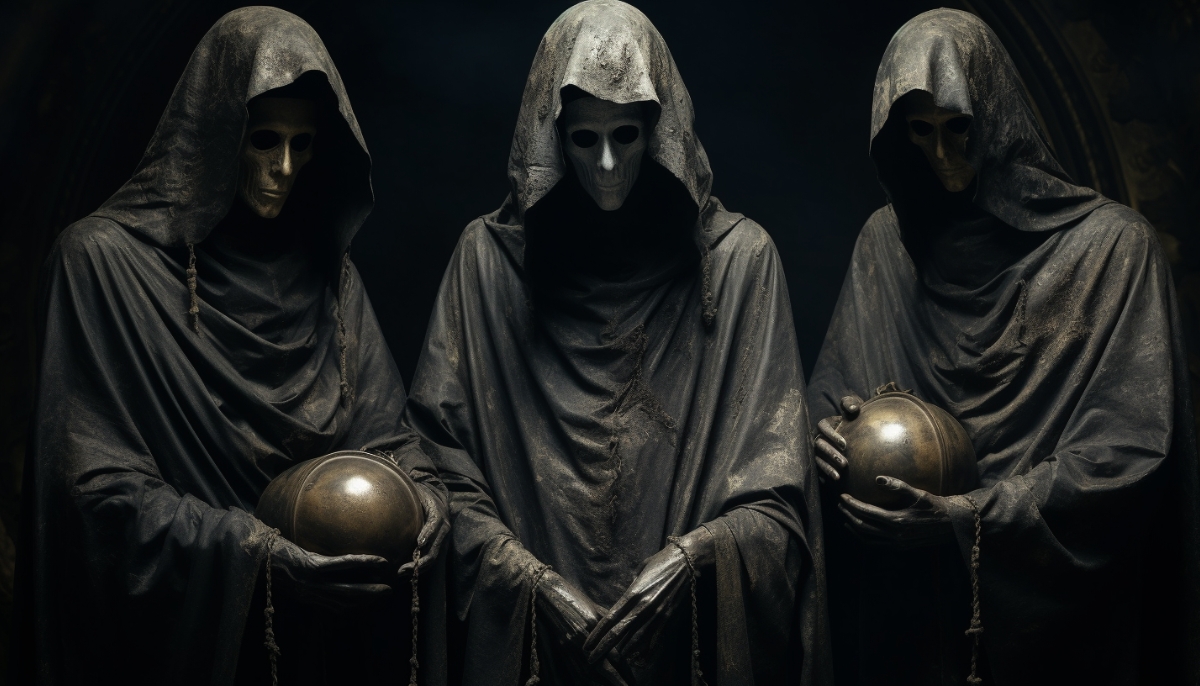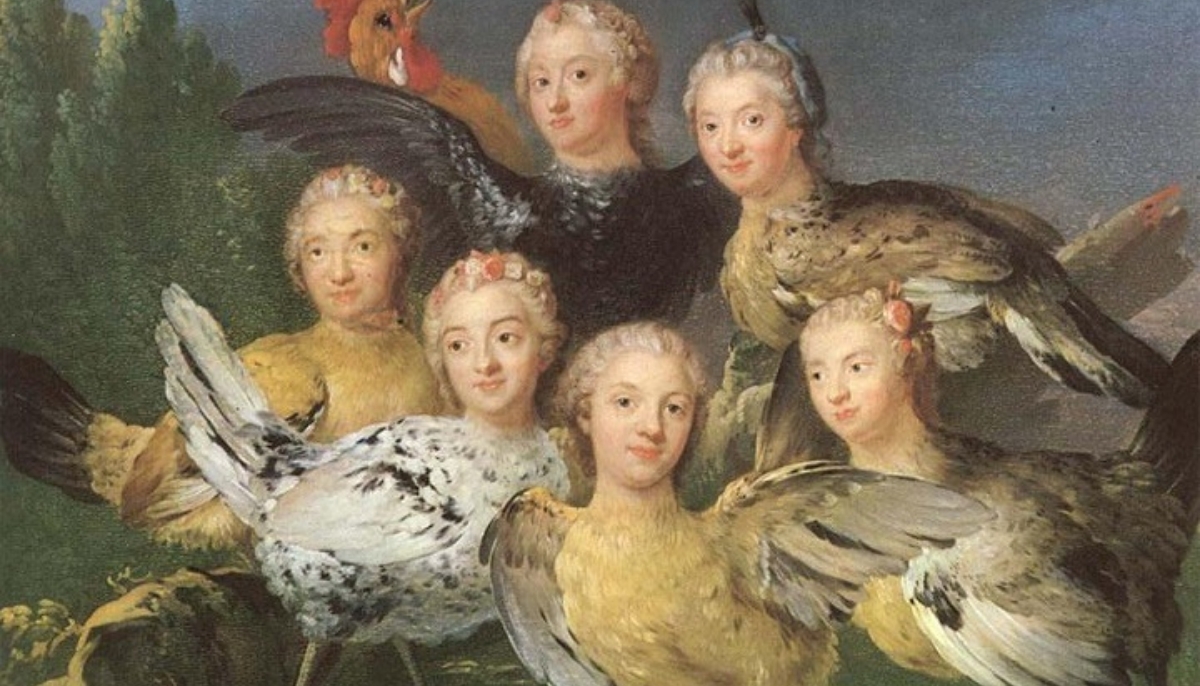“You, my comrades in arms, obey the commands of your leaders in the knowledge that this is the day of your glory — a day on which, if you shed but a drop of blood, you will win for yourselves crowns of martyrdom and eternal fame”
These stirring words, attributed to Emperor Constantine XI, capture the essence of a pivotal moment in history: the fall of Constantinople in 1453.
This article delves into the dramatic final hours of the Byzantine Empire, exploring the siege, the legendary last speech of its final Emperor, and the enduring legacy of a ciConstantinople’se brink of collapse.
The siege of Constantinople in 1453
Constantinople, before 1453, had a rich history as a bastion of the Byzantine Empire. However, the city never fully recovered after the Latin sack in 1204. Its decline set the stage for the siege by tConstantinople’se.
The Ottomans, under Sultan Mehmed II, aimed to capture Constantinople. Constantinople’s strategic location, controlling key trade routes between Europe and Asia, made it a coveted prize. Additionally, its conquest held significant religious symbolism for the Ottomans, symbolizing the triumph of Islam over Christianity.
As it is plain thou desirest war more than peace, as I cannot satisfy thee by my vows of sincerity or by my readiness to swear allegiance, so let it be according to thy will. I turn now and look above to God.
If it be His will that the city should become thine, where is he who can oppose His will? If He should inspire thee with a wish for peace, I shall indeed be happy. Nevertheless I release thee from all thy oaths and treaties to me, I close the gates of my city, I will defend my people to the last drop of my blood.
And so, reign in happiness till the Righteous and Supreme Judge shall call us both before the seat of His judgment.
Message from Constantine to Mehmed II Source
As the siege commenced, Constantinople’s defenders were a small mix of Byzantine soldiers and foreign merchants. Despite their limited numbers, they were outnumbered 10-1. They were determined to protect the city.
However, the prolonged siege increased weariness and hunger among the defenders. This physical strain heightened their sense of superstition and dread.
Bad omens
Several omens during this time fueled these superstitions. A notable prophecy suggested the last Roman Emperor would be named Constantine, born of a Helena. This seemed to point directly to Emperor Constantine XI.
During the siege, a series of eerie events occurred. On May 24, there was a lunar eclipse, a sign many saw as ominous. Two days later, during a religious procession, the revered icon of the Virgin Mary fell to the ground, further alarming the populace.
Then, a violent thunderstorm, unprecedented in its intensity, struck the city. The following morning, a thick fog enveloped Constantinople, and that night, a red glow illuminated the Hagia Sophia before disappearing.
The Turks viewed this glow as a divine signal that the cathedral would soon be part of the Islamic faith. In contrast, the Byzantines interpreted it as the Holy Spirit departing the city.
Amidst this turmoil, Constantine XI faced a critical decision. His friend, George Sphrantzes, urged him to flee the city while he still could. However, ConstanSultan’sused to abandon his city and people.
I thank you all for the advice which you have given me. I know that my going out of the city might be of some benefit to me, inasmuch as all that you foresee might really happen.
But it is impossible for me to go away: how could I leave the churches of our Lord, and His servants the clergy, and the throne, and my people in such a plight? What would the world say of me? I pray you, my friends, in the future do not say to me anything else but, ‘Nay, sire, do not leave us.’ Never, never, will I leave you. I am resolved to die here with you.’
And saying this, the Emperor turned his head aside, because tears filled his eyes; and with him wept the Patriarch and all who were there.
Constantine XI Source
The final speech of Constantine XI
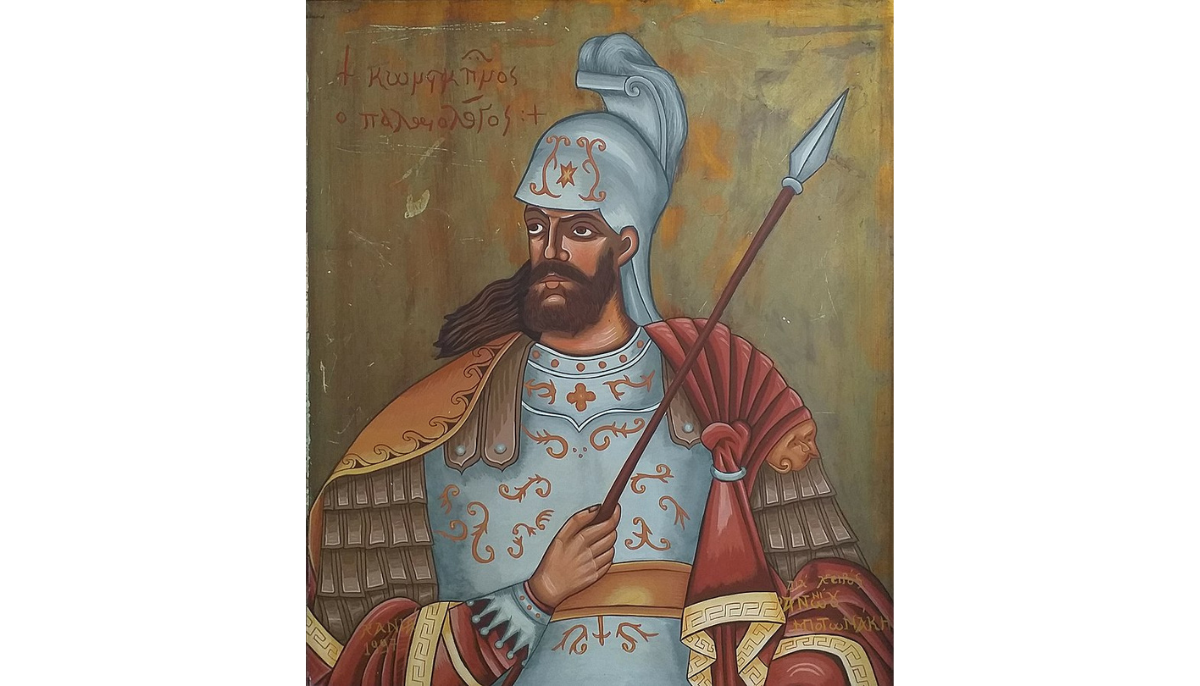
After 53 days of relentless siege, both the Byzantine defenders and the Ottoman attackers were exhausted. Sultan Mehmed II was growing impatient. Among his advisors, some argued that the siege had lasted too long and should be abandoned. Yet, the younger generals, aligning with the Sultan’s resolve, advocated for a final assault. Plans were thus set for a decisive attack in the early hours of May 29.
In these tense moments, the defenders of Constantinople turned to their faith for solace. A spontaneous procession, uniting Greeks and Italians, Orthodox and Catholic, formed in the streets. They carried the most revered icons, perhaps seeking divine intervention. Emperor Constantine XI, aware of the significance of this moment, joined the procession. It was a poignant display of unity and faith amidst despair.
As the procession concluded, Constantine XI gathered his captains and generals. It was time for his final instructions, a speech that would resonate through history.
Constantine XI quote
“Gentlemen, illustrious captains of the army, and our most Christian comrades in arms: we now see the hour of battle approaching. I have therefore elected to assemble you here to make it clear that you must stand together with firmer resolution than ever.
You have always fought with glory against the enemies of Christ. Now the defence of your fatherland and of the city known the world over, which the infidel and evil Turks have been besieging for two and fifty days, is committed to your lofty spirits.
Be not afraid because its walls have been worn down by the enemy’s battering. For your strength lies in the protection of God and you must show it with your arms quivering and your swords brandished against the enemy.
I know that this undisciplined mob will, as is their custom, rush upon you with loud cries and ceaseless volleys of arrows. These will do you no bodily harm, for I see that you are well covered in armour. They will strike the walls, our breastplates and our shields. So do not imitate the Romans who, when the Carthaginians went into battle against them, allowed their cavalry to be terrified by the fearsome sight and sound of elephants.
In this battle you must stand firm and have no fear, no thought of flight, but be inspired to resist with ever more herculean strength. Animals may run away from animals. But you are men, men of stout heart, and you will hold at bay these dumb brutes, thrusting your spears and swords into them, so that they will know that they are fighting not against their own kind but against the masters of animals.
You are aware that the impious and infidel enemy has disturbed the peace unjustly. He has violated the oath and treaty that he made with us; he has slaughtered our farmers at harvest time; he has erected a fortress on the Propontis as it were to devour the Christians; he has encircled Galata under a pretence of peace.
Now he threatens to capture the city of Constantine the Great, your fatherland, the place of ready refuge for all Christians, the guardian of all Greeks, and to profane its holy shrines of God by turning them into stables for his horses. Oh my lords, my brothers, my sons, the everlasting honour of Christians is in your hands.
You men of Genoa, men of courage and famous for your infinite victories, you who have always protected this city, your mother, in many a conflict with the Turks, show now your prowess and your aggressive spirit toward them with manly vigour.
You men of Venice, most valiant heroes, whose swords have many a time made Turkish blood to flow and who in our time have sent so many ships, so many infidel souls to the depths under the command of Loredano, the most excellent captain of our fleet, you who have adorned this city as if it were your own with fine, outstanding men, lift high your spirits now for battle.
You, my comrades in arms, obey the commands of your leaders in the knowledge that this is the day of your glory — a day on which, if you shed but a drop of blood, you will win for yourselves crowns of martyrdom and eternal fame.”
Constantine XI
The death of Constantine XI
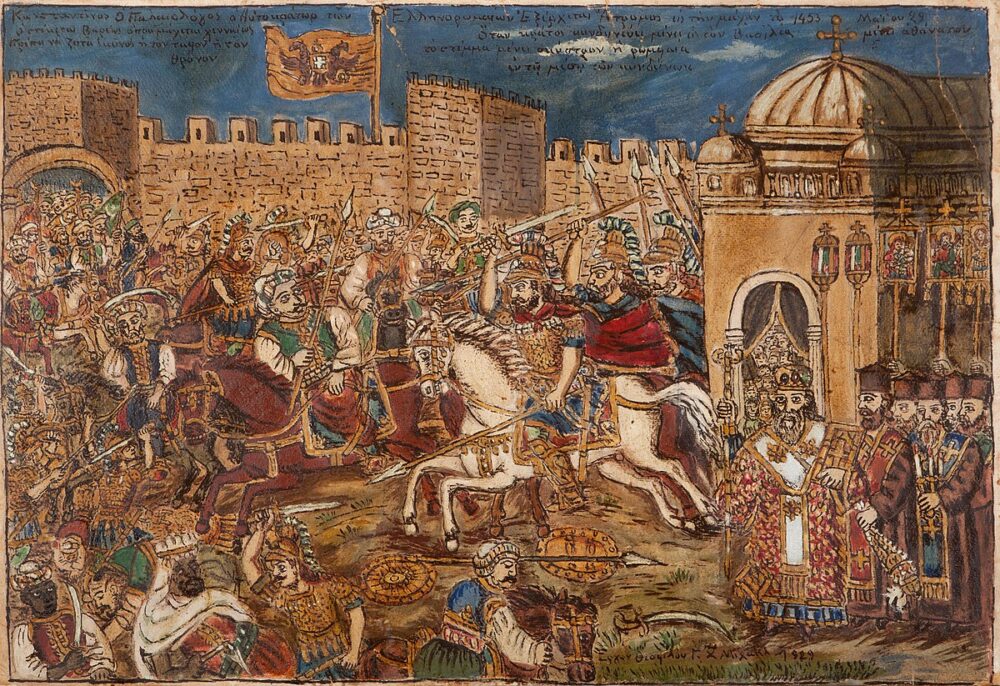
The following morning, the Ottomans launched their decisive assault on Constantinople. Emperor Constantine XI, true to his resolve, led the defensive efforts. He rallied his troops, urging them to hold the city walls with their remaining strength. The scene was one of desperate bravery as the Byzantine defenders fought to protect their city.
The combat was fierce. Despite the valiant efforts of Constantine and his men, the Turks eventually breached the gates, marking a pivotal moment in the siege. The city, long thought impregnable, was now vulnerable to the invading forces.
Whoever wishes to escape, let him save himself if he can; and whoever is ready to face death, let him follow me!
Constantine XI
In these chaotic final hours, about two hundred men chose to stand with Emperor Constantine for their last stand. Determined to fight to the end, they made their way to the gate, engaging the Turkish troops in fierce combat. This group of loyal defenders, fighting alongside their Emperor, exemplified unparalleled bravery in the face of certain death.
The exact details of Constantine’s final moments remain shrouded in mystery. No Greek survivors were present with the Emperor in his last battle, leaving historians to piece together his end from various accounts and legends.
The most popular and enduring account suggests a scene of intense battle where Constantine, amidst the chaos, was separated from his followers. He was dismounted from his horse, overwhelmed by the sheer number of Ottoman soldiers, and killed.
Is this actually what the Emperor said? (probably not)
The legendary speech attributed to Emperor Constantine XI during the siege of Constantinople in 1453 raises questions about its authenticity. Historically, the portrayal of Constantine’s final hours is often romanticized, resembling a Hollywood-style narrative of valiance and heroism. However, when scrutinizing historical sources, the accuracy of these accounts comes under scrutiny.
George Sphrantzes, a close confidant of the Emperor, provided an account of the events. His description, notably less detailed and heroic, contrasts with the grandiose speech often cited. This discrepancy suggests that the dramatic portrayal of Constantine’s final speech might be more a product of embellishment than historical fact.
On Tuesday May 29 1453, early in the day, the sultan took possession of our City; in this time of capture my late master and emperor, Lord Constantine, was killed.
I was not at his side at that hour but had been inspecting another part of the City, according to his orders. Alas for me; I did not know what times Providence had in store for me!
George Sphrantzes
The origins of the long, dramatic speech are traced back to a letter by Bishop Leonardo Giustiniani, who was present in the city during its fall. However, the reliability of Giustiniani’s account is debatable. Given that no other eyewitness accounts corroborate the details of such a speech, it’s plausible that Leonardo embellished the Emperor’s final moments.
The lack of detailed and heroic elements in Sphrantzes’ account, compared to Giustiniani’s, indicates a possible romanticization of the events. In the absence of consistent eyewitness testimonies, it becomes challenging to confirm the authenticity of the speech attributed to Constantine XI.
Historical records often contain a mix of facts and interpretations influenced by the writers’ perspectives and the prevailing cultural narratives. In the case of Emperor Constantine XI’s final speech, while it captures the spirit of his resistance, its literal accuracy remains a subject of historical debate.
